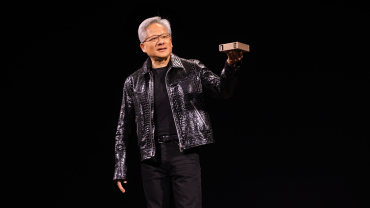

- Leaders
- Tech Icons 500
Airbnb CEO Adopts 'Founder Mode' to Lead AI-Era Evolution
3 minute read
Travel Giant Reinvents Leadership Style as CEO Takes Direct Control of AI-Driven Transformation
Key Facts
- Airbnb, valued at nearly $80 billion, is implementing ‘founder mode’ leadership under CEO Brian Chesky to maintain startup-like agility
- The company’s AI customer service agent has reduced human agent contacts by 15%, with deployment to all U.S. users planned by May 2025
- Q1 revenue grew 6% to $2.3 billion, though net income decreased from $264 million to $154 million year-over-year
Introduction
Airbnb CEO Brian Chesky is championing a revolutionary management approach called ‘founder mode’ to navigate the AI era, emphasizing hands-on leadership and startup-like adaptability. This strategy marks a significant departure from traditional corporate management styles, particularly as the company, now valued at almost $80 billion, seeks to maintain its innovative edge.
Key Developments
The concept of ‘founder mode’ emerged during Airbnb’s IPO preparations in December 2020, when Chesky began taking a more active role in detailed operations. According to Business Insider, Chesky recently elaborated on this approach during The Verge’s “Decoder” podcast, emphasizing that “great leadership is presence not absence.”
Airbnb has implemented numerous operational improvements, including removing 450,000 problematic listings and launching Airbnb Services for booking professionals. The company’s AI customer service initiative, launched in April 2025, represents a significant step toward automated customer support.
Market Impact
The company’s financial performance reflects both growth and transition, with revenue increasing 6% to $2.3 billion in the latest quarter. However, net income declined to $154 million from $264 million, attributed to increased headcount and investment write-downs.
Airbnb’s expansion into service bookings positions it as a comprehensive travel and lifestyle platform, moving beyond traditional accommodation services. This strategic shift aligns with Chesky’s vision of adapting to AI-driven market changes.
Strategic Insights
Chesky identifies AI as the third major technological wave, following personal computers and the internet. His ‘founder mode’ approach emphasizes maintaining startup-like agility to capitalize on AI opportunities while preserving human-centric services.
Expert Opinions and Data
Industry analysts note that Airbnb’s AI integration strategy stands out in the travel sector. The company’s AI customer service agent now serves 50% of U.S. users, with plans for complete U.S. market coverage by May 2025. This technological advancement aligns with broader industry trends toward automated customer service solutions.
Conclusion
Airbnb’s embrace of ‘founder mode’ and AI integration represents a strategic response to evolving market demands. The company’s focus on maintaining startup-like adaptability while scaling operations demonstrates a balanced approach to growth and innovation in the AI era.








